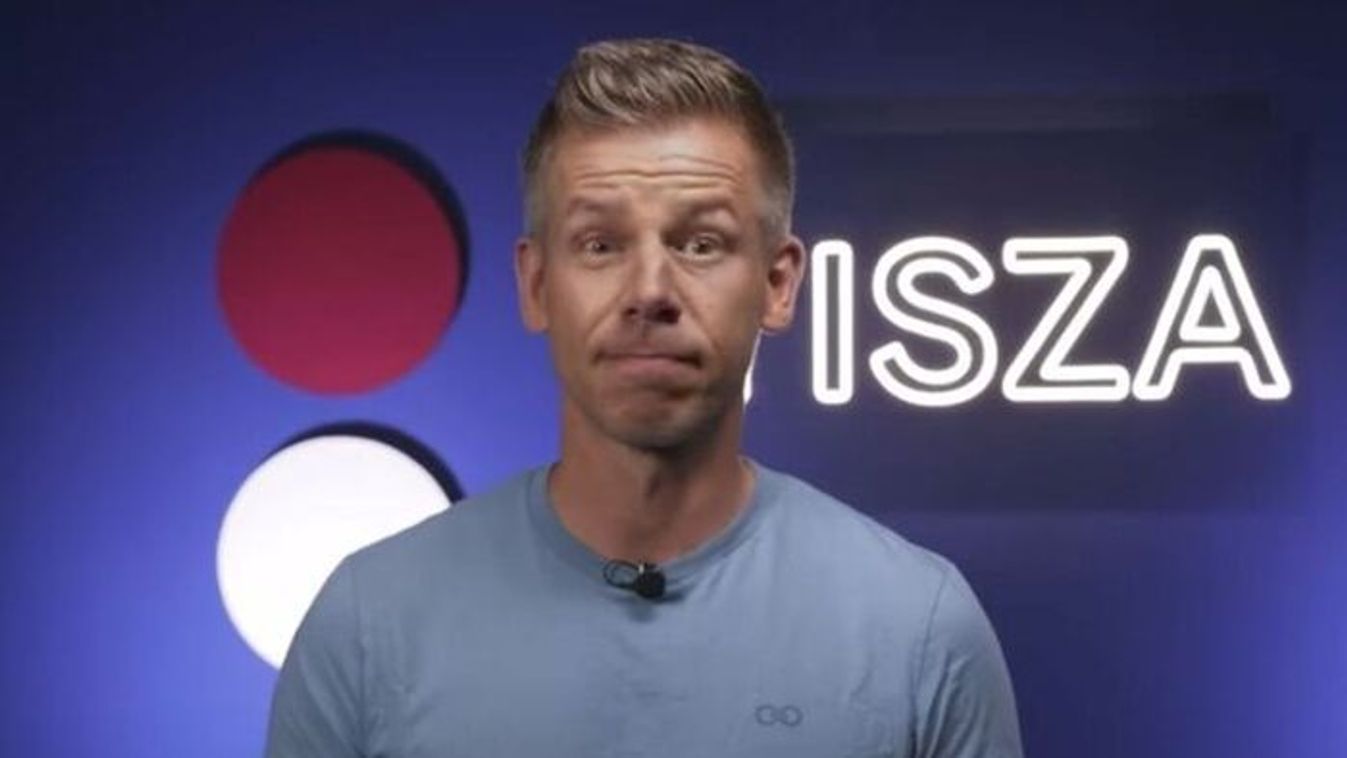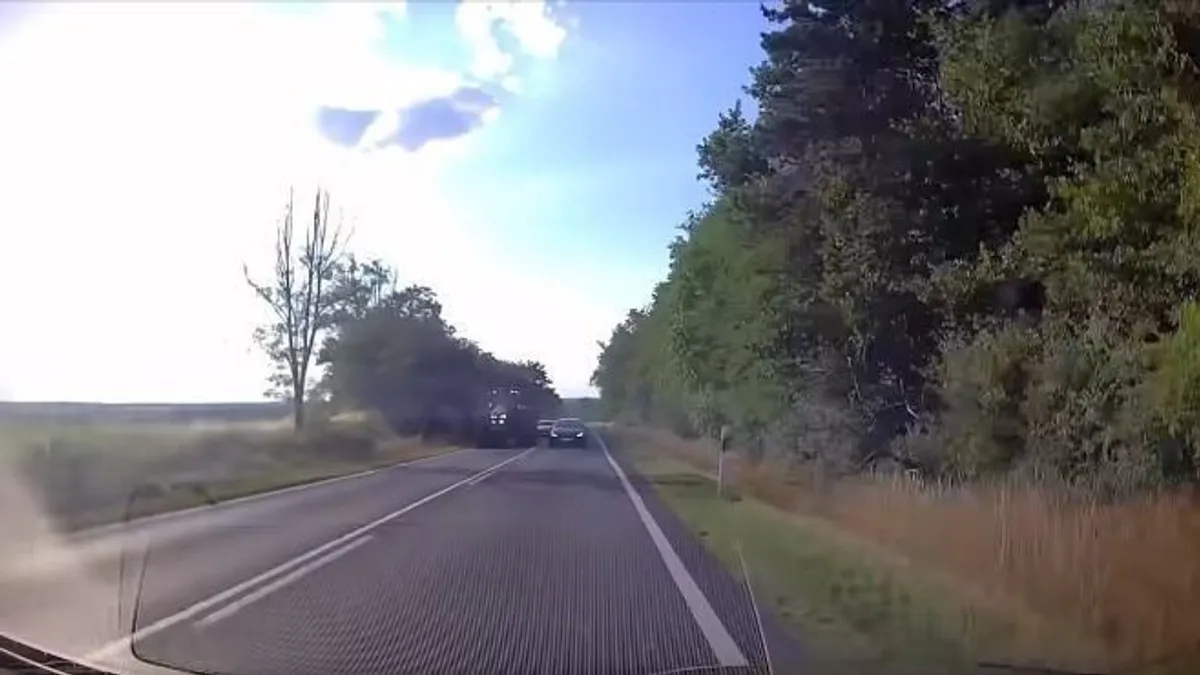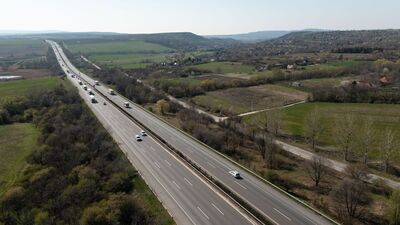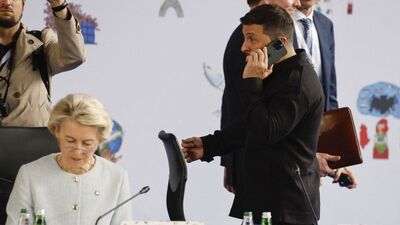Hogyan állhatott elő az a helyzet, hogy Magyar Péter válhatott Orbán Viktor egyetlen esélyes kihívójává?

Ki, hogyan és miért részes abban, hogy ez a helyzet előállott?

This is an unendurable state of affairs. No matter what sort of humanitarian approach may be cited, it is insane to allow completely unknown individuals to wander around Europe with no real restrictions.
Our news magazine Mandiner.hu has recently introduced a new a series of articles entitled ˝The migration and us˝. You can follow this series in Hungarian by clicking on this link.
*
For weeks now, we have started and ended our day with the refugee crisis on the minds of us news reporters; however, based on the visitations to the page, this may be said of our readers as well. In my entire life I have never argued so much on one topic as I have with this particular one. There is an obvious apathy in the general public, a sort of fatigue; not to mention the fact that the constantly updating of events forces us to rethink our principles on the matter.
One thing is for certain: during the Greek economic crisis, we were completely convinced that if anything, this would show the true weaknesses in this European project. We were mistaken. The greatest EU crisis ever was not induced by Tsipras, but by the thousands upon thousands of Middle-eastern and Far-eastern refugees who are currently crossing the southern borders of the Schengen Area. This situation is the manifestation of a much more dramatic failure of a combined European politics than the Greek issue was, and even with the Greek affair, most people (unfortunately) had little clue about the happenings.
Brussels is currently dabbling on the otherwise senseless quota system, and is in fact adjusting it daily to suit the constantly changing situation. Germany has only worsened the situation by recklessly jumping the start and then pulling the brakes. All this, while Hungary and its neighbours slowly sink to the point of a squabble that is usually associated with bar fights, not diplomatic relations.
All the while tens of thousands of migrants/refugees/immigrants arrive to Europe without any sort of registration, and without any sort of supervision. They don’t ask for asylum, therefore they don’t qualify as asylum-seekers; at the same time, without any sort of monitoring we don’t know they are, therefore they don’t qualify as refugees (according to the law they wouldn’t qualify as refugees until the end of the investigation) or economic immigrants either. But based on the behaviour of these crowds, still the best word to describe them would be migrant.
This migrant crisis can and must be examined from at least two points of view: the rapid handling of the situation, and the long-term interests of Europe. The confusion usually occurs when one tries to use the arguments behind one side to beat to a pulp someone arguing the opposite, and vice versa. Even in this question, the decades old trench-warfare tactics perfectly describes the Hungarian society’s incapability to come to a consensus about anything.
Therefore, it is required that these two questions be answered apart when attempting to find an answer.
Unendurable state
Let’s start with the most vital of questions: it’s absolutely intolerable that tens of thousands of people enter South-Eastern Europe daily and are unwilling to disclose any personal information. Nothing like this has ever existed, nor has it ever occured, that one does not request refugee status at the first available place where one has not only the opportunity, and authorities not only demand, but offer it. The latter in this case carries much importance. The reason being, that without a proper investigation there is no way to decide whether one is a Syrian refugee; a Pakistani or Kosovian who does not qualify for protection; or even, God help us, a terrorist with a warrant on their head.
I must be clear that with this we are not stating that every migrant is a terrorist, because obviously that’s untrue – in fact most are probably people who at one point left their place of residence because of a conflict. But what is true, is that we cannot be sure who is a terrorist and who isn’t since they travel in a crowd and make it impossible for the institutions of impacted countries to be willing to register them according to the Dublin Regulation before they reach their desired destination, which is often Germany, Denmark, Sweden and Finland. Since the deemed ˝March of Hope˝ set off by foot from the Eastern Railway Station towards the open Austrian border, these thousands of people track across Europe like no one since the Visigoths and the Vandals or a few centuries later the Magyars.
This is an unendurable state of affairs. No matter what sort of humanitarian approach may be cited, it is insane to allow completely unknown individuals to wander around Europe with no real restrictions. If so, then we should close the Schengen’s border-crossings; close the checkpoints found at airports; and release all members of secret services from their duties. It seems no one in Europe gives a damn about who’s walking up and down the continent. If anything else, we should at least be able to keep them in some sort of quarantine until a proper investigation is completed.
Such suggestions have been made in reference to so-called EU hotspots, which, for whatever reason, Hungary wants to hear nothing of. Hungary has its own solutions, the only solution which worked, even if for only one day: the ever-growing fence across the southern borders of Hungary. Its stretching and stretching like pastry dough because as it had been earlier pointed out: until it reaches the promising Austrian border, it is avoidable. The fence and discouraging legislation was a complete success: for all of one day. And if Croatia acted responsibly and would be shipping Slovenia the migrants then all of Hungary’s problems would be solved.
No country for migrants
Without any sort of consensus, everybody is trying to save their own skin: Greece, Macedonia and Serbia all do so by shipping the migrants free of charge in order to rid themselves of responsibility. Greece doesn’t even act as if it’s trying to protect its Schengen borders – and maybe it’s an ideal time to not entrust our Greek colleagues with such a task. And it’s right to believe that Serbia and Macedonia are much too small to be capable of controlling such a torrent.
Hungary is the first country, which is a member of the EU and a protectorate of Schengen borders and who actually made any attempt to quell the situation. Although most people requesting refugee status had already stepped foot in a Schengen country, they were first registered here – and the statistics paint a pretty picture when one takes a glance at the incline of immigrants in recent years. It’s of course a whole different issue that after registering, most of the people seeking refugee status headed further west – no complaints, we did our part of the Dublin Treaty. (What’s more, Hungary found itself on the losing end of an international court case, so there’s really nothing else we can do.) First, it was the hopeless Kosovoians who bumped up the statistics and after, following in – quite literally, their footsteps (partly from the trampled footpaths, partly from the developing human trafficking trade) - this summer we were met with the arrival of actual refugees fleeing from war.
It was obvious from the start that the Hungarian system was unprepared for this, despite having recently completed a national consultation and poster campaign. In actuality, we would have had plenty of time to prepare that numerous amount of accommodation about which Minister of Internal Affairs Sandor Pintér had spoken about in regards to the minority of Hungarians living in Ukraine. Whatever our standpoint may be towards the migrant situation, one thing is for sure, and that is that the Hungarian government did not accomplish its basic tasks from mid-August to early September: these tasks were done by volunteers, doctors, and interpreters; a chain of warnings and donations were the substitution in first Szeged, then Eastern Railway Station, and finally at Röszke. Whether this was planned by the state in order for its citizens to feel the pressure of the situation, or whether they were simply too lame to act, we’ll never know.
It was proper briefing of the situation that was most absent: it wasn’t only the migrants who had no clue what was going on, but also the Hungarian citizens. The otherwise outspoken political leaders disappeared, Sandor Pinter went on holiday, the opposition was nowhere to be found, all this while the entire world media made camp in the deadly heat at Baross square. The migrants wanted to continue their trek, and the government, whether waiting for a sign from Berlin, or by heat of passion didn’t want to let them go. All the while not concerning itself with them in any other way. My colleague Andras Stumpf put it perfectly when he stated that maybe they should head towards the refugee camp if they require supplies. But then the question arises: if a maximum 2-3 thousand people fit in a refugee camp, where are we to put 2-3 refugees arriving a day?
Walking around the square was enough to make one’s heart burst. First and foremost because of the children. No family-man departs on such a journey like this without good reason. But even when considering the lone young men, we have no way of knowing who they were forced to leave behind in Turkish, Lebanese, Jordanian, or Iranian refugee camps: mothers, fathers, wives, girlfriends, boyfriends, children. Walking around the Eastern Train Station one was forced to consider what would happen if we ourselves would have to flee. How much would we take into consideration the laws existing in the countries we entered, knowing that there my family would find peace.
The answer? I probably wouldn’t consider it at all.
The diplomatic struggle
As we had previously mentioned, the Greeks, who are currently living off life-support, have finally abandoned ever being a proper European Union state; the Macedonians and Serbians have to consider the EU relations only because they have a keen interest in joining it one day soon. Despite this, they’re transporting the migrants towards the Hungarian border by boat and by bus. We’ve already spoken about how Hungarian principles required us to do something about these people instead of simply giving them free transport. The following weeks revolved around how half the world was despising us for what we were or weren’t doing. And after giving in and letting the migrants continue, the result was that every following country abandoned its status: the once boisterous critics got a taste of what Hungary was going through, with the only difference being the shorter time span and a bit more Willkommenskultur.
While we’re here, we may discuss how the entire Orban government pushed the problem away from itself with the fence and the border closure. Although the fence idea seemed a bit daft, it turned out quite well: if anything, it confirmed that, with a strong stance and with some not intended inhumanity, the migrants can certainly be rerouted in a different direction. And according to Orban, the construction of a whole fence system maybe even put an end to the issue, or at least shape it into a reasonable state. The construction of this southern European fence would be the logical final piece to the ˝fence-puzzle˝ – physical and natural - that stretches around Australia across to the American-Mexican border, Ceuta and Melilla in Northern-Africa and finally finishing off with the fence around Israel. With this the developed North may finally separate itself from the ever younger and ever hungrier South.
Looking back towards Europe we see the following: the Schengen Agreement falling apart in front of our eyes as each state reintroduces border controls within the EU. Simultaneously, Serbia switched from transporting the migrants towards Croatia instead of Hungary; Croatia, after pronouncing for a week how much more humane they were going to be than those rascal Hungarians, within 24 hours fall apart and coupled with the most idiotic communication yet, they began sending buses to Hungary and Slovenia. The only thing missing now for the reestablishment of the Little Entente is for Slovakia to follow suit and join the Serbian, Romanian, and Croatian government officials, which of course Slovakia won’t do for the simple reason that it would undermine their own interests. The recently productive (pun intended) Hungarian Ministry of Foreign Affairs with Captain Szijjarto at the helm believes that the best defence is a good offence: give a good kick to anyone who is criticizing us.
All the while, Brussels is talking about quotas, and the very same Germany who had recently let out resounding cries for the safety of the migrants is now preaching about a ˝joint solution˝. As I write these lines, a crowd of uncontrolled people are entering the EU, this time, not through Röszke but across the Croatian-Hungarian border and Croatian-Slovenian border. We are no closer to the solution, despite that the monitoring and registration of this crowd – whether at Röszke, Serbia or Turkish hotspots – is what will determine whether there’s any use in discussing long-term solutions.
Migration and us, Europeans
Does Europe need so many immigrants? Can we cope with so many refugees? Which question should we discuss at all? This is such a suggestion, that to find a solution we need to first register the refugee, and then complete a thorough investigation.
I completely agree with the stance of the Hungarian Helsinki Committee and the HCLU (Hungarian Civil Liberties Union): refugee status has pretty much disappeared in this new system, and the rights of asylum-seeker has certainly been damaged. It is up to them to research this and to act to resolve this. During more peaceful times, I also wrote about such problems, for example about the catch 22 in family reunification, or the problems concerning our integration system.
But right now we are in a state of crisis. Even if the Hungarian state wanted to validate the laws of asylum-seekers, or if the migrants wanted them to be validated, it still couldn’t. And all this simply because they are unwilling to be registered, to request refugee status, and to be temporarily placed in a Hungarian refugee camp – but most are unwilling to do this even in Austria, Germany, Denmark and Sweden. Is this normal? I doubt it. I realize that Serbia isn’t safe, nor is Hungary according to new legislation – but what about the other previously mentioned states, where quite often the Wilkommenskultur is overdone? Europe has every legal right to control the crowds entering it: its important, if not for any other reason, then because it will allow for proper examination of refugee status claims.
If the EU can begin to control the torrent of migrants – either at its borders or in Turkey – then we can begin discussing how we can perform our humanitarian requirements towards the refugees of the Middle-East; or how we can solve the supply-side of European immigration, if there truly is such a large demand as we see. We do require immigration of some organized form; the southern-Spanish aluminium foil industry swallowed up thousands of cheap labour immigrants from Africa and the Middle-East.
However, before we do anything else, the refugees and the migrants must understand the rules. It is not the obligation of European nations to adjust to the demands of those arriving, but rather it is those arriving who must fulfil this societal obligation. This principle must be severely enforced. With regards to the refugees, they must be aware that their stay is based on a determined time length, and that after the situation in the Middle-East is resolved, it would be preferred and supported – materialistically as well – that they return home; with regards to the migrants, it must be made clear what we demand: that they follow our laws, and at least respect the society that admits them. And if they like what they see here – why wouldn’t they, if this is their chosen destination? – then they should be hasty in becoming a part of it.
What this requires most is a prompt, joint action by Europe, in which the first step is for the European leaders to recognize: even if the negative media becomes directed at them, they need to step-up against the extraordinary crisis that is currently underway at the southern border of the Schengen zone.











